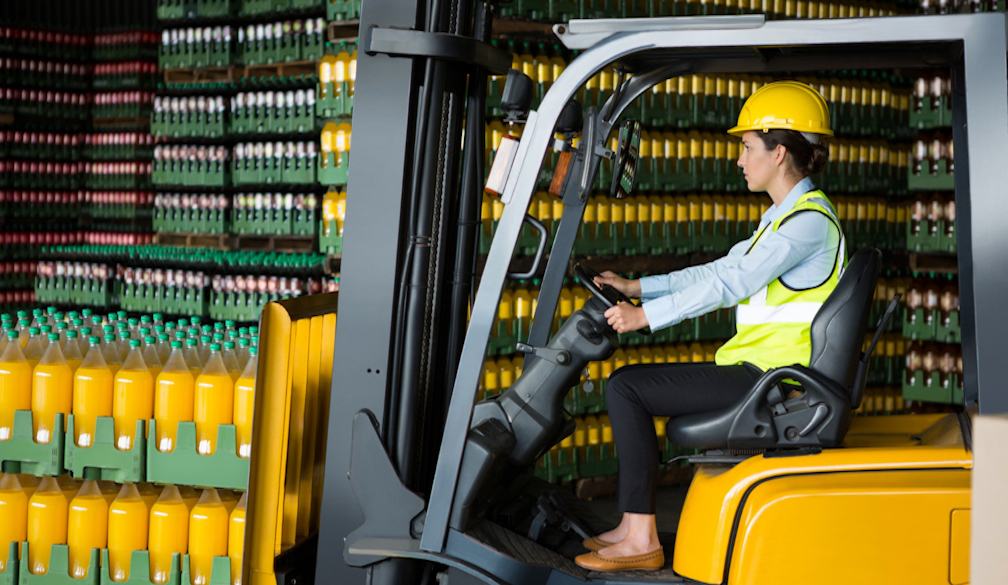How to Maximise Efficiency with Forklift Operations

In industries where materials handling is a daily necessity, efficiency is key to maintaining productivity and profitability. Forklifts play a pivotal role in these operations, serving as indispensable tools for moving heavy loads with ease. However, without proper management and utilisation, forklift operations can become inefficient, leading to delays, accidents, and increased costs. In this guide, we'll explore strategies to maximise efficiency in forklift operations, ensuring smooth workflow and enhanced productivity.
1. Training and Certification: Ensuring Competence and Safety
The foundation of efficient forklift operations lies in competent and well-trained operators. Investing in comprehensive training programs and ensuring operators obtain proper certification is essential. Proper training not only ensures safe operation but also improves efficiency by teaching operators how to maneuver forklifts skillfully, minimising downtime due to accidents or errors.
2. Regular Maintenance: Keeping Forklifts in Prime Condition
Just like any other machinery, forklifts require regular maintenance to function optimally. Implementing a proactive maintenance schedule ensures that forklifts are in top condition, reducing the risk of breakdowns and maximising uptime. Regular inspections, timely repairs, and adherence to manufacturer guidelines for maintenance prolong the lifespan of forklifts and contribute to efficient operations.
3. Optimal Fleet Management: Right-sizing and Utilisation
Assessing the size and composition of the forklift fleet is crucial for optimising efficiency. Right-sizing the fleet ensures that there are enough forklifts to meet operational demands without unnecessary excess. Additionally, tracking forklift utilisation allows for the identification of underutilised assets that can be redistributed or, if necessary, put up it for sale and buy another one by exploring options such as forklift for sale on internet enables organisations to streamline their fleet and reduce maintenance and operational costs associated with surplus equipment.
4. Layout and Organisation: Streamlining Workflow
Efficient forklift operations are greatly influenced by the layout and organisation of the workspace. Designing layouts that minimise unnecessary travel distances and congestion optimises workflow and reduces fuel consumption. Clear signage, designated traffic lanes, and organised storage areas contribute to smoother operations, enabling forklift operators to move goods swiftly and safely.
5. Technology Integration: Leveraging Automation and Telematics
Incorporating technology into forklift operations can significantly enhance efficiency. Automated forklifts, equipped with sensors and navigation systems, can perform tasks with precision and consistency, reducing the need for manual intervention and minimising errors. Telematics systems provide real-time data on forklift performance, enabling proactive maintenance and optimising routes for maximum efficiency.
6. Continuous Improvement: Embracing a Culture of Optimisation
Efficiency in forklift operations is not a one-time achievement but a continuous process of improvement. Encouraging feedback from operators and stakeholders fosters a culture of innovation and problem-solving. Regular review of processes and procedures allows for the identification of bottlenecks and inefficiencies, leading to targeted improvements that enhance overall productivity.
Conclusion
Maximising efficiency in forklift operations requires a holistic approach that encompasses training, maintenance, fleet management, workspace design, technology integration, and a commitment to continuous improvement. By implementing these strategies, organisations can streamline their operations, minimise costs, and achieve optimal performance in materials handling. Whether through optimising fleet size, embracing technology, or exploring options like "forklift for sale," the goal remains the same: to maximise efficiency and drive success in the ever-evolving landscape of industrial operations.

















